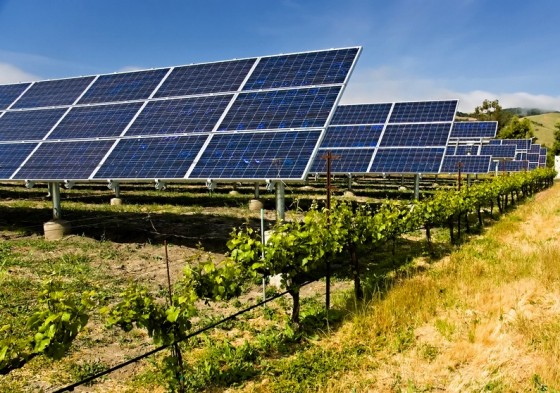 |
| Image Source: themindunleashed.org |
Sustainable farming is not just about the bottom line. It involves using non-renewable resources efficiently, natural resources wisely, avoiding irreversible damage to the environment, and growing nutrient-rich crops while satisfying food needs and improving the quality life of both farmers and consumers.
The following are two examples of sustainable farming practices that should be employed by eco-conscious farmers and farm operators:
Crop diversification
Diversifying crops ensures greater genetic diversity, which stabilizes ecosystems. Planting different varieties of the same crop together ensures that, in the event of a pest attack, not all crops will be affected. In addition, diverse plants lead to more diverse populations of natural pest-fighting organisms.
Growing alternative crops also secures more profitability while lessening environmental impact. Two studies have found that farms with greater crop diversity can operate year-round, providing continuous employment for farm workers.
Other advantages to crop diversification include exploring and marketing to niche markets and helping the local economy by growing crops that would otherwise have been imported from other areas.
 |
| Image Source: uky.edu |
Alternative energy use
According to the Environmental Protection Agency (EPA), agriculture is responsible for approximately nine percent of total human-related greenhouse gas emissions.
To lessen carbon footprint without compromising the profitability of a farm operation or the quality of its crops, and to offset the environmental damage caused by crop production, field burning, livestock manure management, and rice cultivation, farm operators should consider using alternative energy sources.
Biodiesel, created through a chemical reaction between vegetable oils or animal fats and alcohol, can be burned as fuel or mixed with a petroleum-based diesel while reducing carbon monoxide emissions by up to 12 percent. It can be used to power heavy farm machinery.
Other alternative energy sources to consider are hydro-power, which harvests energy from moving water, and solar power, which can be used to pump water, charge electric fences, and power lighting.
 |
| Image Source: greenprophet.com |
Ourmilla Sharma aims to support Guyana's agriculture industry by producing high-quality rice varieties for local consumers and for export. To learn about other sustainable farming best practices, subscribe to this blog,
No comments:
Post a Comment